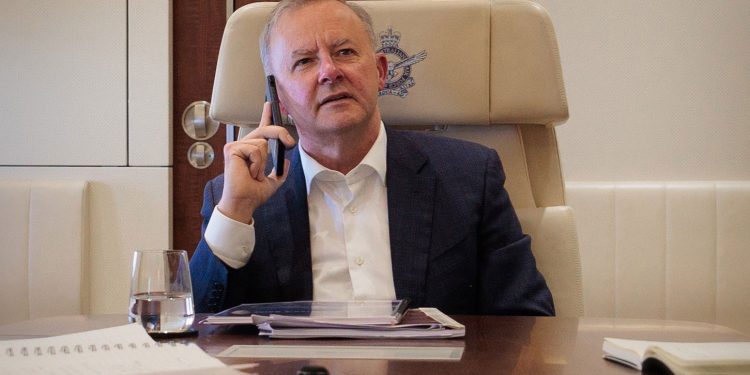An Australian human rights group, The Humanism Project, has appealed to the new Australian Prime Minister Anthony Albanese to raise Australia’s concerns over “India’s democratic decline” in his meeting with his Indian counterpart.
Anthony Albanese is meeting Indian Prime Minister Narendra Modi in Tokyo on Tuesday on the sidelines of the Quad summit. The Humanism Project has requested Mr Albanese to make discussion on human rights an essential part of strategic and trade negotiations between Australia and India.
In a letter to the Prime Minister and the new Australian Foreign Affairs Minister, Penny Wong, THP says, “We are hopeful that under your leadership, the strategic partnership between the two nations will continue to grow, both at diplomatic and peoples’ levels. We are, however, concerned about India’s recent record of assault on minorities, dissent, human rights and free speech.”
“A xenophobic and authoritarian India would destabilise the Quad and Australia’s interests,” reads the letter adding, “Australia’s silence on India’s human rights violations, suppression of dissent and free speech legitimise its autocratic authoritarianism.”
“India is integral to the success of the Quad Alliance. But the Quad will only succeed if the partners have a shared belief in “the rule of law and standards of good governance,” according to Lavina Lee of Sydney’s Lowy Institute,” it says.
“Lee says that “a region that becomes inhospitable to liberal democratic values at a domestic level is much less likely to support and reflect the principles of a free, open and inclusive international order.” That description fits present-day India,” THP said in their letter.
Read: Why should Australia be concerned about the human rights situation in India?
“Australia cannot pretend India will be an able and stable partner in the face of all-round democratic and economic decline. Further, the resultant fissures within civil society in India are creating a direct and damaging ripple effect within the Indian diaspora in Australia. The increasingly emboldened right-wing assertions by the supporters of the current regime threaten the peace and harmony within the social fabric of our communities,” it adds further.
Concerns over Human Rights violations in India
Many national and international human rights organisations have raised concerns over the allegedly deteriorating human rights condition in India.
The United States Commission on International Religious Freedom (USCIRF) has recommended in its 2022 report that the US designate India as a Country of Particular Concern for “engaging in and tolerating systematic, ongoing and egregious religious freedom violations,” alongside the likes of China, Saudi Arabia, Pakistan, North Korea, Iran and Myanmar. Furthermore, USCIRF has recommended that the US “raise religious freedom issues in the US-India bilateral relationship and highlight concerns through hearings, briefings, letters, and congressional delegations.”
Read: Why is the Indian media erasing ‘Hindus for Human Rights’ from the Republic Day story?
The UN Secretary-General, the UN High Commissioner for Human Rights, and various UN Special Rapporteurs have expressed deep concern about India’s democratic decline. The UN High Commissioner for Human Rights has even joined litigation at India’s Supreme Court against a new citizenship law discriminating against Muslims, which triggered mass protests.
This year, India’s press freedom ranking fell to 150 (out of 180 countries). According to Reporters Without Borders (RSF), “The violence against journalists, the politically partisan media and the concentration of media ownership all demonstrate that press freedom is in crisis in “the world’s largest democracy”, ruled since 2014 by Prime Minister Narendra Modi, the leader of the Bharatiya Janata Party (BJP) and the embodiment of the Hindu nationalist right.”











